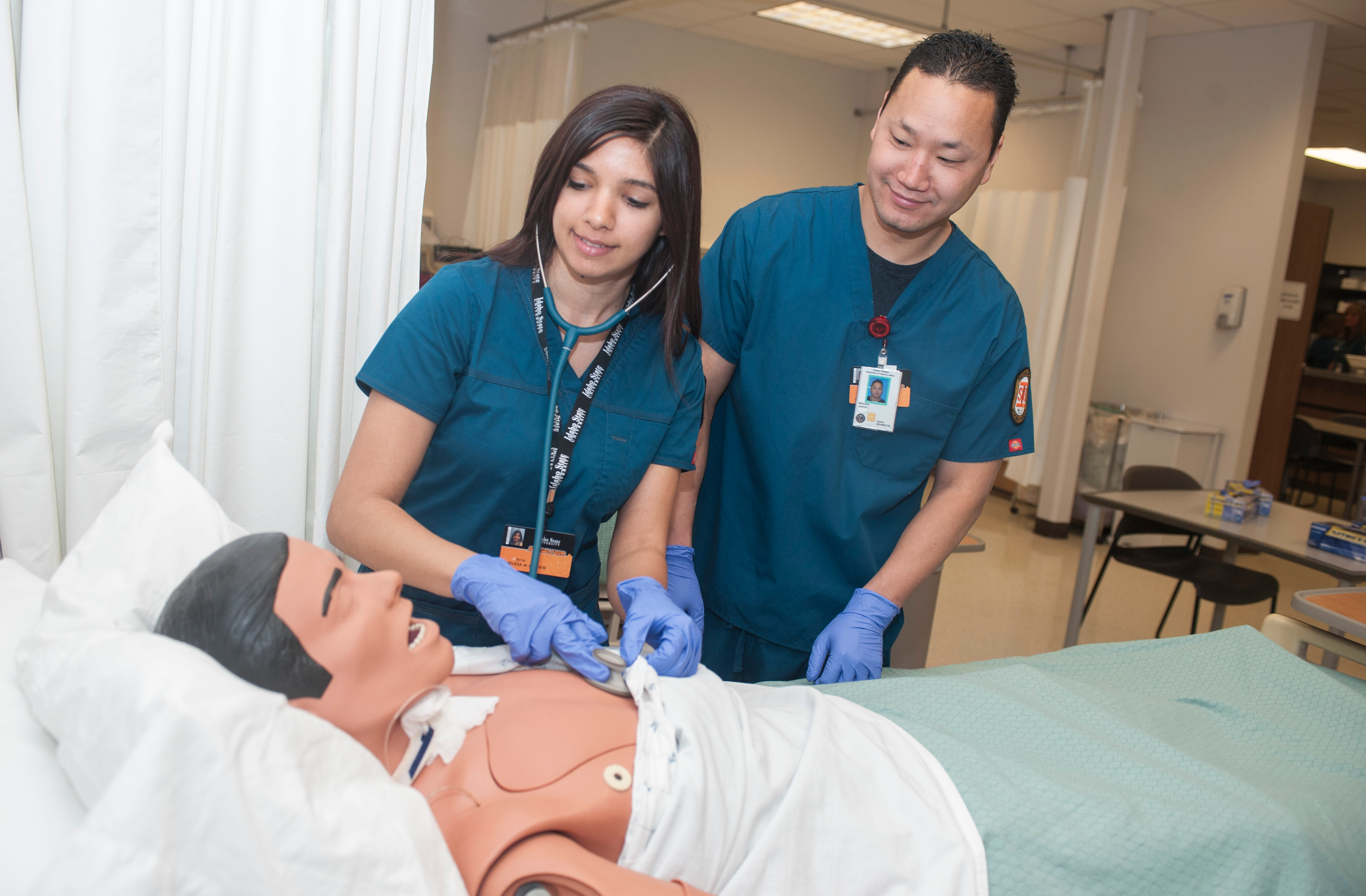Three new Idaho State University health sciences programs will add to Idaho’s workforce
Idaho State University’s Kasiska Division of Health Sciences is stepping up to address increasing workforce needs in multiple health professions statewide. ISU consistently looks for ways to help fill these gaps, in terms of programs and degree offerings, in order to better serve communities across the state and to ensure workforce demand is met. Three new programs proposed by ISU have recently been approved by the Idaho State Board of Education: the Master of Occupational Therapy expansion to Meridian, Master of Counseling in Clinical Rehabilitation Counseling and Master of Health Informatics.
ISU has the only graduate level program for occupational therapy, the Master of Occupational Therapy (MOT), in the state of Idaho. In 2019, the MOT program admitted 18 students, the maximum for Pocatello, from an applicant pool of approximately 70 candidates. Studies have predicted these enrollment numbers for the MOT program will not be sufficient to meet the need for occupational therapists in Idaho, and it is predicted that the shortage will further expand over the next ten years. The demand for occupational therapists in Idaho is projected to rise 25.4% between now and 2029, according to the Idaho Department of Labor.
In October 2019, ISU’s MOT expansion proposal cleared the Idaho State Board of Education. The program will now move forward in working with the Accreditation Council for Occupational Therapy Education (ACOTE) to add two more students in Pocatello, for a total of 20. Upon approval from ACOTE, the program will also expand to the ISU-Meridian campus, where there will be 20 seats as well. That means an increase from 18 to 40 students in the MOT program in Idaho, which will more than double the number of MOT graduates by the 2022-2023 school year. ISU plans to bring on more faculty and staff to support this expansion as well.

The University of Idaho-Boise currently offers a Rehabilitation Counseling program that will soon be shuttered. ISU Vice President for Health Sciences Rex Force says individuals in the ISU Department of Counseling kept a close eye on this development and were ready to step in to avoid any gaps in this program offering for Idaho students. “The continuation of this program at Idaho State will avoid a lapse in training and make strides to increase the number of well trained counseling professionals in Idaho as well. We appreciate the opportunity to help continue to meet the need for this particular workforce in Idaho.” According to the Idaho Department of Labor, the projected growth of demand for this occupation is expected to increase by 15.5% over the next ten years. The expansion of offered degrees doesn't stop there. ISU has also been approved to add a second new program - a Clinical Rehabilitation Counseling specialty area to the existing Masters of Counseling (MCOUN). The current MCOUN has four specialty options: School Counseling; Student Affairs Counseling; Clinical Mental Health Counseling; and Marriage, Couple, and Family Counseling. All four specialties are offered in Pocatello, with the Clinical Mental Health Counseling program also offered in Meridian. The new specialty area curriculum will be offered in both Meridian and Pocatello, via distance learning, as many of ISU’s programs offered in both locations. ISU will accept 12 students into the program each year, the only program of its kind available in the Pacific Northwest.
In addition, a fully online Master of Science in Health Informatics (MSHI) will now be offered as an alternative to ISU’s already established, traditional face to face MSHI. Over time, the face to face program will eventually be phased out when the online MSHI program is fully implemented. The MSHI degree “helps bridge the gap between the medical and administrative knowledge possessed by healthcare personnel and the information technology knowledge possessed by informaticists”, according to Velma Payne, director for the program. The new online format will accommodate up to 20 students each semester.
At the same time, the curriculum will be enhanced to pursue accreditation from the Commission on Accreditation for Health Informatics and Information Management (CAHIIM), which will allow students to prepare and sit for a number of Health Informatics Certification Exams. Currently, there are no CAHIIM accredited online programs in Idaho, Wyoming, Montana, Nevada, or Washington, making the proposed online MSHI from ISU more competitive. The proposed restructure and curriculum changes will support ISU’s program meeting the 2018 CAHIIM accreditation requirements. Graduation from a CAHIIM accredited program is required to be eligible to sit for American Health Informatics Management Association professional certification exams.
“Overall, ISU is poised and committed to continue enhancing our program offerings in the health sciences directly in response to the workforce needs of Idaho and the United States,” Force explains. “ISU remains the destination for health professions education in Idaho.”
